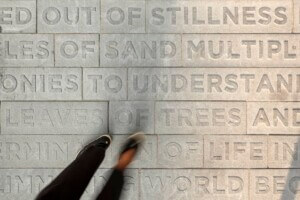Two graduate programs at the Illinois Institute of Technology (IIT) in Chicago were among the first cohort to earn Zero Energy Design Designation (ZEDD), a program recognizing academic coursework focused on building science and zero-energy design established and run by the Department of Energy (DOE). IIT’s Master of Engineering in Architectural Engineering and Master of High Performance Buildings programs won the designation for their emphasis on sustainable design and energy efficiency.
IIT was among 12 other higher education institutions designated by the DOE, other schools recognized were: Appalachian State University, Ball State University, Hawkeye Community College, Howard University, Myongji University (South Korea), The Catholic University of America, University of Cincinnati, University of Colorado, University of Missouri, Vermont Technical College, and Western Washington University.
In a press release, Brent Stephens, chair of IIT’s architecture, engineering and sustainability departments, commented: “This designation is important to us because it demonstrates our commitment to, and passion for, sustainable building design and interdisciplinary education. It is an honor to receive this designation as one of the first pilots.”
To qualify for ZEDD, schools must meet the standards laid out by the DOE for the Building Science Education Curriculum and the Zero Energy Design Practicum, which state that educational institutions can either participate in the annual Solar Decathlon Building Education series, a curriculum and competition designed by the DOE to inform students about the scientific principles of zero energy building, or can develop their own curriculum which must adhere to the DOE’s requirements.
IIT’s graduate programs opted to participate in the DOE’s Solar Decathlon, which it has previously won. In 2021, a team of Illinois Tech students won the retail division of the Solar Decathlon, designing an energy efficient building which was proposed to fill an empty lot in Chicago’s Goose Island neighborhood. The design imagined an 82,000-square-foot mixed-use retail space, called The Nook, which would house a storefront for school and art supplies on its first floor and multipurpose space on the second floor. The building’s roof would be equipped with a solar array to meet DOE energy standards and a green roof with plants fed by a rainwater collection system. IIT also recently launched a new degree program in partnership with the Council on Tall Buildings and Urban Habitat that focuses on tall building design.
Carolyn Snyder, deputy assistant secretary for energy efficiency at the DOE commented: “Our fight against climate change runs straight through our nation’s buildings, and the forward-looking college and university programs we honored today are paving the way for students to lead our net-zero greenhouse gas emissions future. Graduates of these programs will join the front lines of our fight against the climate crisis by designing sustainable buildings that bring the benefits of our clean energy future to all.”
More information about ZEDD and details on how to participate next year is available online.











